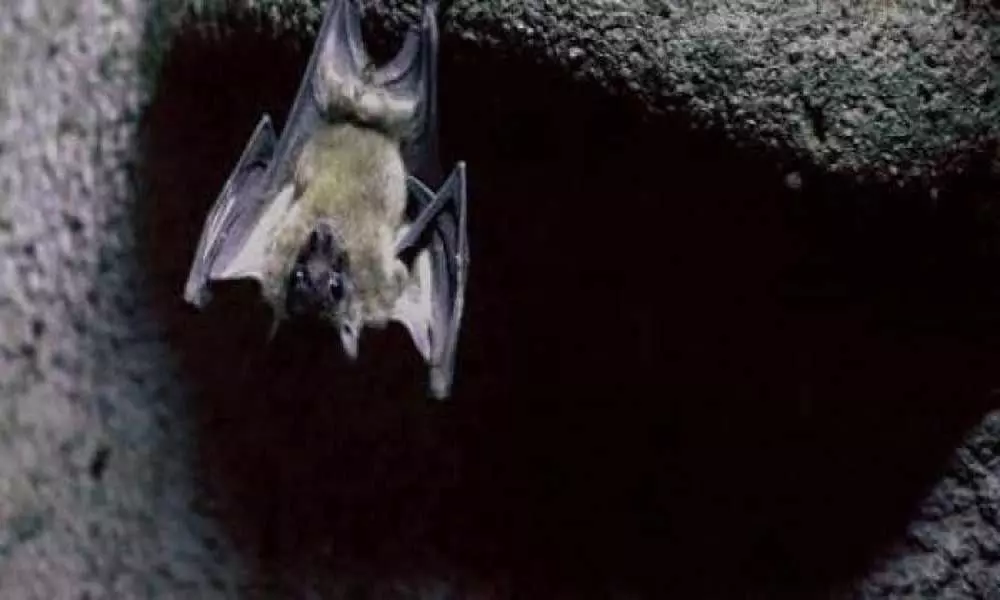Live
- ‘Zebra’ movie review: A gripping tale of banking fraud and redemption
- Saurabh Netravalkar, Unmukt Chand, Dwayne Smith and Rahkeem Cornwall headline USPL
- NPP asks members not to attend meeting called by Biren govt
- Bulls roar on Dalal Street, Sensex and Nifty up over 2 pc
- Over 880,000 people displaced in Lebanon, food security deteriorates: UN
- BGT 2024-25: Bumrah picks 4-17 as Australia trail India by 83 runs in 17-wicket day
- Calcutta High Court stays order on demolition of hotels in Bengal’s Mandarmani
- AP Legislative Council Approves Key Bills
- WhatsApp Update: WhatsApp Rolls Out Group Mentions in Status Updates
- Czech PM, European Council President-elect discuss cooperation, EU priorities
Just In
Chinese scientists believe pangolins may have spread coronavirus from bats to humans


Pangolins are believed to be one of the world's most trafficked mammals.
Beijing: Pangolins could be responsible for the spread of the deadly coronavirus in China, scientists said on Friday after they found the genome sequence separated from the endangered mammals 99 per cent identical to that from infected people.
Pangolins are believed to be one of the world's most trafficked mammals. Thousands of them are poached every year due to their medicinal value and human consumption in countries like China and Vietnam.
The genome sequence of the novel coronavirus strain separated from pangolins was 99 per cent identical to that from infected people, indicating pangolins may be an intermediate host of the virus, according to a study led by scientists at the South China Agricultural University.
According to Liu Yahong, president of the university, the research team analysed more than 1,000 metagenome samples of wild animals and found pangolins as the most likely intermediate host, state-run Xinhua news agency reported as 73 new deaths were reported in China on Thursday due to the novel coronavirus.
As of Thursday, 636 people have died mostly in Hubei province and its provincial capital Wuhan due to the virus with the total number of confirmed cases jumping to 3,143, Chinese officials announced on Friday.
Molecular biological detection revealed that the positive rate of Betacoronavirus in pangolins was 70 per cent, the scientists said.
The scientists further isolated the virus and observed its structure with an electron microscope. They found that the genome sequence of the coronavirus strain was 99 per cent identical to those in infected people, the study said.
Results showed that pangolins are a potential intermediate host of the novel coronavirus, Liu said, adding that the study will support the prevention and control of the epidemic, as well as offer scientific reference for policies on wild animals.
After the coronavirus, China has temporarily banned trading exotic animals. Birds and animals are in the centre of the debate about how the virus originated. In the beginning, snakes were blamed for the virus.
Chinese health experts later contended that the virus originated from bats, but whether there are more intermediate carriers between bats and humans requires further investigation.
The virus was believed to have been spread from Wuhan's Hunan seafood wholesale market.
Shen Yongyi, a professor with the university and a member of the research team, said previous research had found the new coronavirus originated in bats, but as the spread of the virus happened in winter, it was unlikely that people had been directly infected by bats which were hibernating.
"So our task is to find the intermediate host that 'bridges' bats and people," he said, adding that there are usually multiple intermediate hosts, and pangolins maybe just one of them.
"On the one hand, we hope this result will warn people to stay away from wild animals.
On the other, we would like to share it with research fellows in the hope of making efforts together to find other possible intermediate hosts to promote epidemic prevention and control," he said.

© 2024 Hyderabad Media House Limited/The Hans India. All rights reserved. Powered by hocalwire.com






